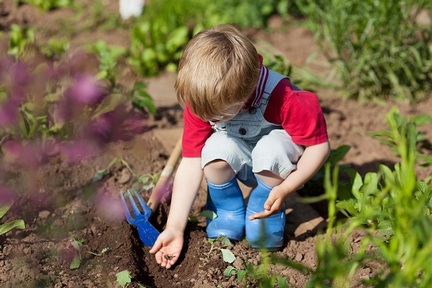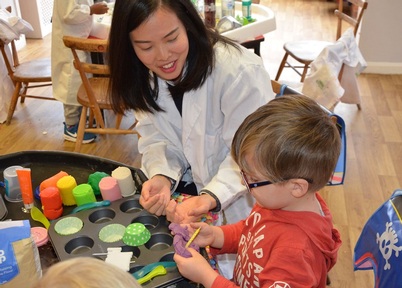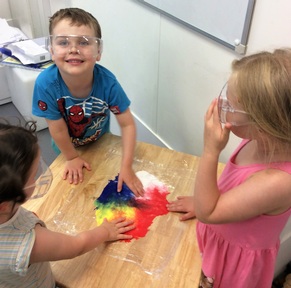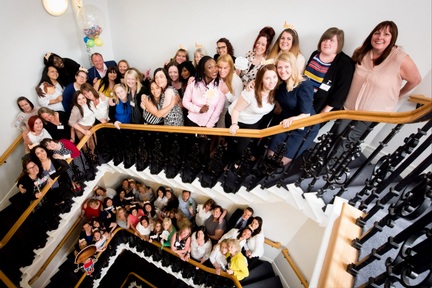New bilingual Mandarin-English nursery prepares children for a world with China as an economic superpower
Earlier this year, father of one, Cennydd John opened a high-end bilingual Mandarin-English day nursery near the Barbican Centre in London.
![]() Photo courtesy of Hatching Dragons
Photo courtesy of Hatching Dragons
Hatching Dragons joins a growing number of bilingual Mandarin-English nurseries in London that recognise the growing importance of China in the world.
Mandarin Chinese is one of the most spoken languages in the world today, whilst other Chinese languages account for almost 1.2bn native speakers or 17 per cent of the population and is spoken in 33 countries worldwide. This is in contrast to English, accounting for around five per cent of the population.
The Chinese economy has an estimated growth rate of 10 per cent each year and the International Monetary Fund (IMF) predicts China to be the world’s largest economy, while during 2013 UK-Chinese trade surpassed £43bn.
However, Hatching Dragons is not a cheap option and is very much a luxury nursery, as with fees of over £6.50 an hour, if a child does 50 hours a week this would cost parents £17,000 a year.
Mr John decided to open a bilingual Mandarin-English nursery as he thought "fluency in a second language would have a real positive impact on my son’s life and prepare him for a future where colleagues are as likely to be in China as they are in Chicago".
He has more than 10 years’ worth of experience, academically and professionally in all things Chinese, a Masters in Chinese and distinction in oral Mandarin, in addition to experience running his own educational consultancy, helping Chinese students secure places at UK and American universities.
He says: “I created Hatching Dragons when I was looking for childcare for my son. I felt so un-inspired by the provisions I looked at, none of them were offering anything different than the care I could offer him at home. Although they could provide care for my son, they weren’t gifted in early years education or helping children develop.”
Hatching Dragons was created on the principle of providing children with a full Mandarin-English immersion experience all day–every day, ensuring that language is not taught, but picked up through daily activities within the nursery environment. The majority of children at the nursery come from families where Mandarin is not spoken.
Hatching Dragons provides children with a full Mandarin-English immersion experience
Acknowledging the international significance that China has, with already nearly 200 Mandarin-English nurseries operating in America, he says: “Thinking about what I wanted to see in a nursery for my son, and from my time spent living and studying in China, I wanted to create an immersion experience for children from an early age to allow my son to learn Mandarin as simply and naturally as possible. By employing some staff who speak English and some who speak Mandarin, the children have the chance to pick up the language by being exposed to it 10 hours a day from a young age.”
![]() Photo courtesy of Hatching Dragons
Photo courtesy of Hatching Dragons
The nursery is located north of the Barbican, a short walk from the tube and just a few miles outside central London, ideally located for parents who work in the city.
Mr John says: “Being located on the cusp of the city, we can provide childcare to people working nearby, giving them the opportunity to see their children as often as possible, and invite them to join us during their lunch-breaks.”
In June 2014, the Prime Minister announced plans to introduce Mandarin into the national curriculum. Speaking about the decision, former education minister and MP Elizabeth Truss said: “China’s growing economy brings huge business opportunities for Britain and it is vital that more of our young people can speak Mandarin to be able to trade in a global market and to develop successful companies.
“The Institute of Education (IOE) Confucius Institute in Bloomsbury and the nationwide network of Confucius Classrooms will be a world-leading centre of Mandarin teaching outside China. It will see a dramatic increase in the number of Mandarin teachers being trained.
“In turn that will mean thousands more young people in our schools will have the opportunity to learn what is the language of the future and the language that will help seal tomorrow’s business deals.”
Mandarin Chinese is fourth in the top ten languages for the future
After hearing that Mandarin was due to be listed on the National Curriculum and the realisation that other parents understood the importance of becoming fluent in other languages from an early age, where learning comes naturally, Hatching Dragons was born.
![]() Photo courtesy of Hatching Dragons
Photo courtesy of Hatching Dragons
In 2013, The British Council publication, ‘Languages for the Future’, ranked Mandarin Chinese as fourth in the top ten languages for the future, overtaken by Spanish, Arabic and French, followed by German in fifth place, then Portuguese, Italian, Russian, Turkish and Japanese.
The study identified the top 10 languages expected to be of most importance to the UK in the next 10–20 years based on a combination of economic and non-economic factors.
Furthermore the study highlights the importance of developing a wide range of languages within the UK in larger numbers in order to benefit from cultural and economic benefits additional languages can provide.
A further study revealed three quarters of people in the UK are unable to speak any of these languages well enough to hold a conversation.
After researching bilingual nurseries and discovering many were offering French as part of their childcare provision, Mr John found that parents sending their children to other nurseries who offered languages such as French, appreciated the importance so bilingual learning with some parents hiring French speaking nannies and au pairs for this reason.
The nursery is housed within the historic Jewin Chapel near the Barbican Centre and is decorated with paper lanterns and images of Chinese dragons. Alongside a soft play area and reading corner, children can engage in shadow puppetry and enjoy noodles for lunch.
‘Children are exposed to Chinese cultural activities every day’
The nursery operates with a team of staff, half speaking only English and half speaking only Mandarin. He says: “We have a team of six staff at the moment and some bank staff with an equal split of Western and Mandarin speaking workers.
“We wanted to prove that we could do more than open a nursery offering childcare, by offering a full immersion experience where children are exposed to Chinese cultural activities every day, children experience the moral application of mandarin and the importance of culture.”
Mr John is currently training for his Level 3 in Early Years Educator (EYE) qualification and recognises the importance of quality early years candidates who have both life experience and qualifications. He says: “At the moment, the qualification requirement for working in a nursery is too low and I am excited about proposed changes to entry requirements. Hopefully this will encourage higher quality candidates to apply for jobs within the sector as the current standard of literacy and grammar amongst among candidates is very poor.
![]() Photo courtesy of Hatching Dragons
Photo courtesy of Hatching Dragons
“We like to see candidates with a Masters level of experience, candidates who are well travelled and well educated in the world. Unfortunately the Department for Education now insists on qualified early year’s workers having an NVQ, which is a shame as we would be happy to give graduates a chance to gain nursery experience on the job.”
Speaking about the lack of men working in the childcare sector, he says: “Behavioural problems with young boys are all too common, they are often remarked as misbehaving and getting into trouble, which is due to the lack of male figures in their lives, often because their own fathers are working so much.
“Many more men are needed in early year’s education to make a positive difference to the lives of young boys and spark and change from an early age. The best way to attract them is money, though the impact they could have on the lives of others is so much greater than that.”
Since the nursery opened in May, Mr John has received more than 50 enquiries regarding places at the nursery and interest from across the world. Recently he received an email about establishing a trilingual nursery in Santiago, Chile where Mandarin, English and Spanish would be spoken.
Mr John adds: “Hatching Dragons is just the start of our plan to encourage a bilingualism in nurseries as it is so important that our future generations can adapt to the world as it becomes so much more connected, cultural and multilingual. We plan to open many more nurseries across the capital, as well as primary and secondary schools to continue bilingual learning as children grow and develop.
“We want to do something different, no other nurseries can offer the same care experience and I believe it is necessary to prove that every nursery should be bilingual and if any child is immersed in a 10 hour nursery day at Hatching Dragons, they are sure to benefit.”
click here for more details or to contact Hatching Dragons Nursery City of London
Latest Innovative Nursery News
 03-Sep-19
Essex nursery ditches plastic toys for natural 'learning opportunities'
03-Sep-19
Essex nursery ditches plastic toys for natural 'learning opportunities'
 18-Mar-19
Nursery exchange practitioner from Singapore: 'Children are the same everywhere'
18-Mar-19
Nursery exchange practitioner from Singapore: 'Children are the same everywhere'
 11-Feb-19
Nursery group calls for two hours mandatory outdoor play per day
11-Feb-19
Nursery group calls for two hours mandatory outdoor play per day
 15-Jan-19
Innovative nursery inspires and sparks passion for STEM learning
15-Jan-19
Innovative nursery inspires and sparks passion for STEM learning
 09-Oct-18
Free holidays for staff on National Nursery Practitioner Day
09-Oct-18
Free holidays for staff on National Nursery Practitioner Day